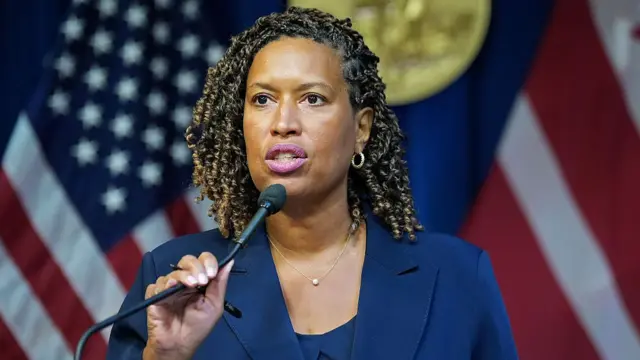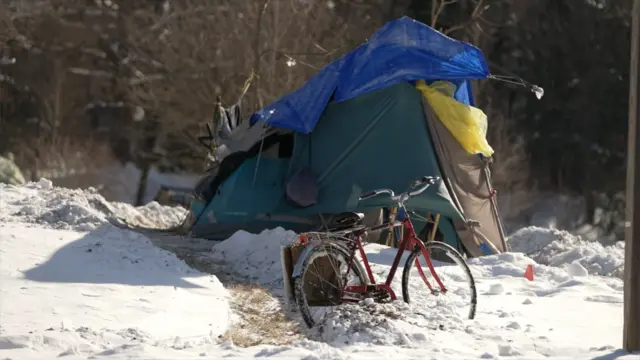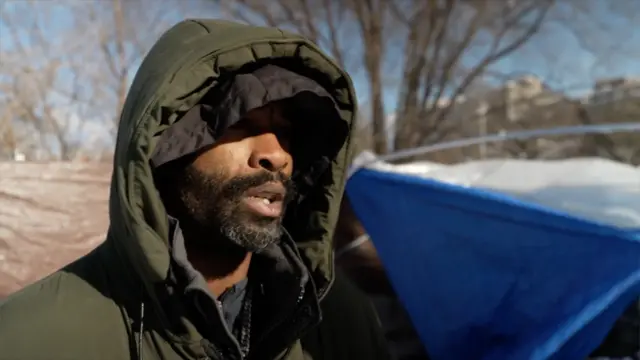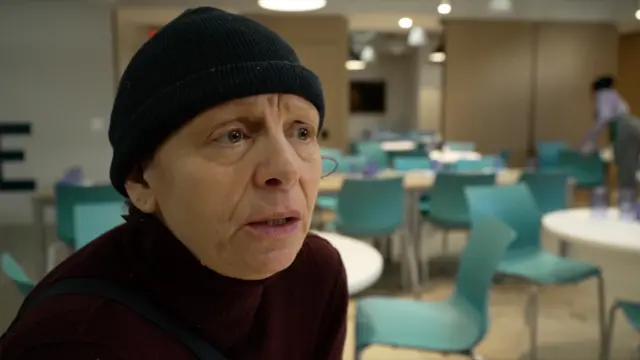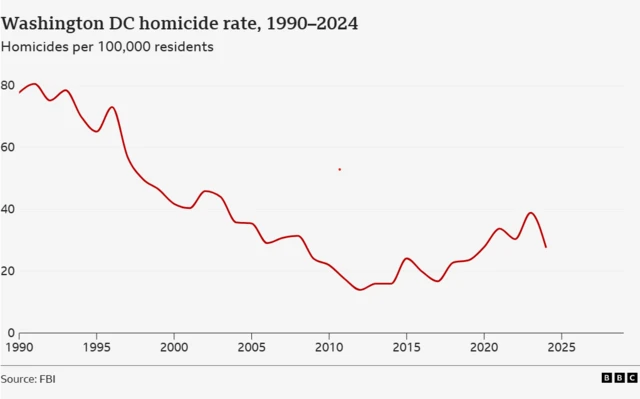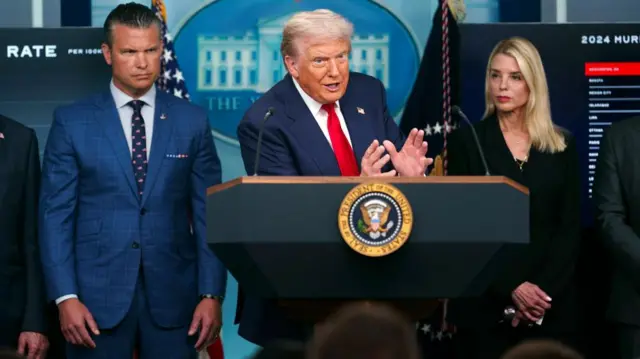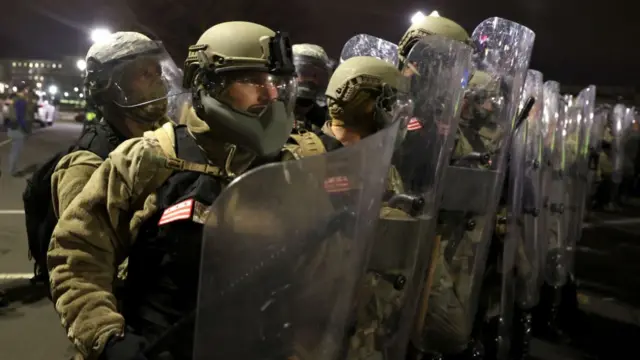Trump orders crackdown on crime and homelessness in Washington DCpublished at 20:35 BST 11 August
 Adam Goldsmith
Adam Goldsmith
Live reporter
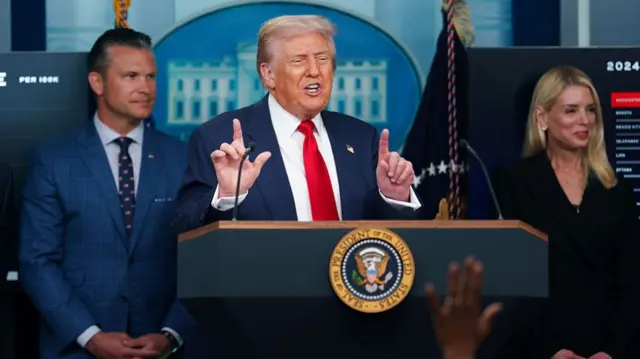 Image source, Getty Images
Image source, Getty ImagesUS President Donald Trump set out his vision to make Washington DC "great again" earlier today, vowing to crack down on crime and homelessness in the nation's capital.
As our North America correspondent writes, appearances are as important as statistics for the president, who told reporters that Washington has been overrun by "violent gangs".
To address this, Trump says he will deploy the National Guard to the capital and put DC police under federal control.
The city's homelessness problem will also be targeted, with Trump saying they will be "getting rid of the slums" - though he did not offer any details about his plans.
Washington DC Mayor Muriel Bowser has stressed that her city is "not experiencing a crime spike", and statistics show that crime is falling. Violent crime is also at a 30-year low, she added.
Bowser described the president's announcement as "unsettling and unprecedented" but not surprising.
We'll be bringing our live coverage to a close shortly. For more, you can read our news story here.
